Israel-Hamas War: What happened on Day 112?
ICJ asks Israel to prevent genocide, doesn't order end to Gaza war • Netanyahu: Israel to defend itself from Hamas, genocide claim outrageous
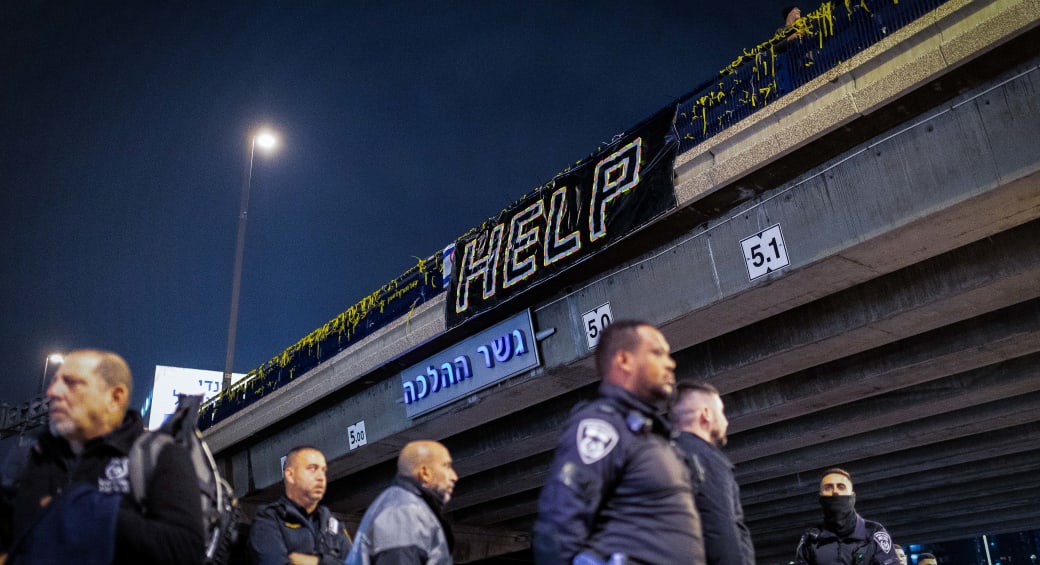
Rocket debris detected in the area of Margaliot

Rocket debris was detected in the area of Margaliot, Israeli media reported on Friday.
This comes after the IDF intercepted a suspicious aerial target over the sea near Rosh Hanikra earlier on Friday.
Go to the full article >>IDF: Intensive battles in heart of Khan Yunis continue
Hamas operational centers, weapons storage facilities, observation posts, and operational meeting points used by terrorists were targeted.
Israeli Air Force fighter jets, directed by IDF troops, carried out strikes on dozens of terror targets, including Hamas operational centers, weapons storage facilities, observation posts, and meeting points used by Hamas terrorists, the military revealed on Friday morning.
After five Hamas terrorists were identified entering a military structure, the soldiers directed an aircraft to strike and eliminate them.
IDF ground troops also identified four terrorists who had fired anti-tank missiles at the troops just a few hours prior. The troops directed a fighter jet and an aircraft to strike and eliminate the terrorist cell. A number of additional terrorists were killed by the troops during combat in the area.
In a separate incident, IDF troops killed six terrorists who posed a threat to the troops, with assistance from tank and sniper fire. 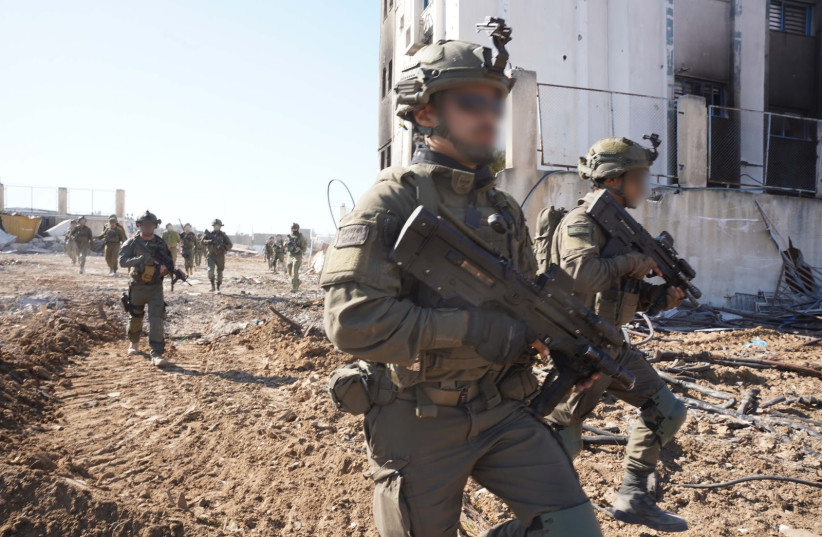
In the northern Gaza Strip, IDF ground and air troops conducted joint operational activity to strike Hamas terrorist infrastructure. Moreover, fighter jets struck a building rigged with explosives, as well as a military site, an anti-tank post, and an operational tunnel shaft. Additionally, IDF troops killed a number of terrorists with tank fire and by directing IDF aircraft.
Overnight, IDF naval troops struck a number of terror targets and provided fire support along the Gazan coastline as part of their assistance to the IDF ground troops operating in the Gaza Strip.
Go to the full article >>UN to investigate acts of rape committed by Hamas terrorists
During her week-long visit, Patten and her team will watch the raw footage from October 7, meet with women who have been released from captivity in Gaza, and hear their testimonies.
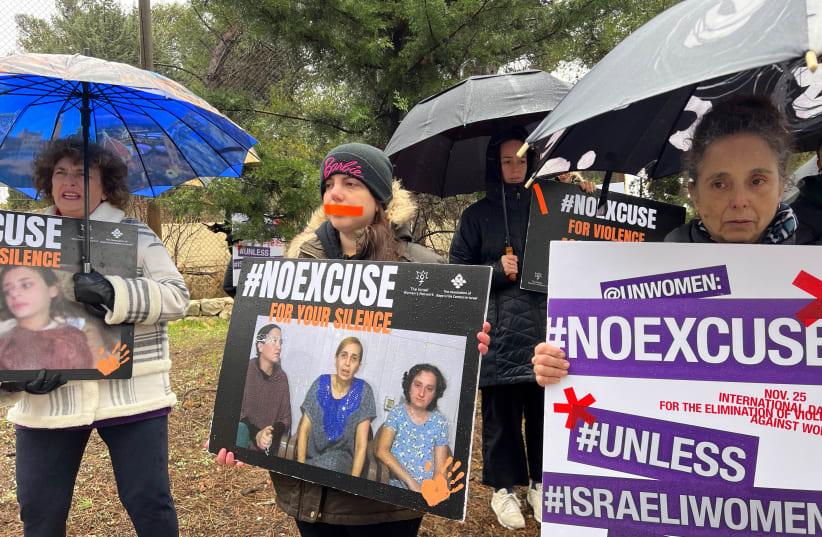
Following an international campaign and pressure led by Israel, the United Nations Special Representative of the Secretary-General on Sexual Violence in Conflict (OSRSG-SVC), Pramila Patten, will visit Israel next week.
During her week-long visit, Patten and her team will watch the raw footage from October 7, meet with women who have been released from captivity in Gaza, and hear their testimonies, N12 reported.
Preparations for Patten's visit
Preparations have been made in Israel to allow Patten, who will arrive on January 29, full access to all the parties involved in the investigation of the acts of rape and sexual violence committed by Hamas terrorists.
The Special Representative is scheduled to visit the site of the Nova festival in Re'im, the Gaza border communities, the military base in Nahal Oz, and route 232, where she will be given an overview of the sexual crimes committed by Hamas, according to N12.
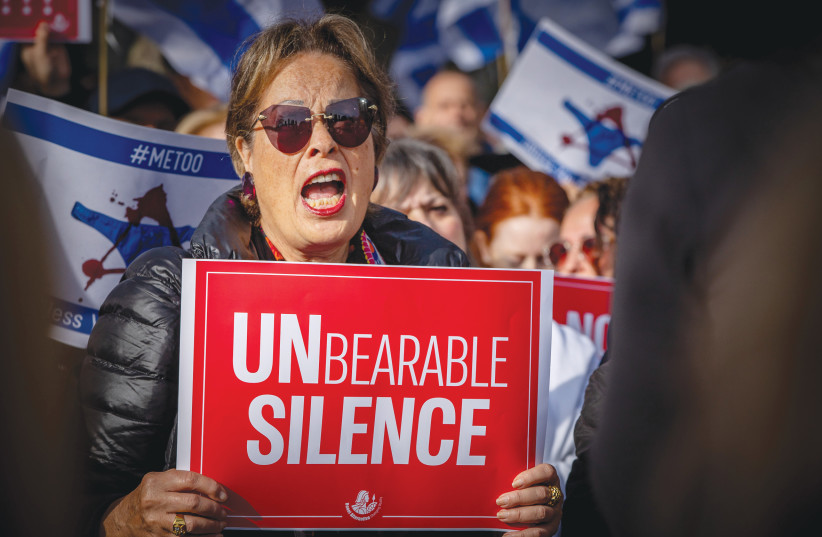
Crucially, Patten will also meet with the investigators of the Lahav 433 National Crime Unit of the Israel Police who are examining the cases, the team at Shura Camp who examined the bodies of the rape and murder victims, and representatives of the Ministries of Justice, Welfare and Foreign Affairs.
In addition to watching the raw footage of Hamas's crimes, Patten is expected to hear and converse with eyewitnesses. This includes one of the Nova producers, hostages who were released from Hamas captivity, and representatives of families whose relatives are still being held in the Gaza Strip, as per N12.
Patten's visit was defined as a "fact-finding mission" to analyze and authenticate information regarding cases of sexual violence, at the end of which her findings will be submitted to the UN Secretary-General and the Security Council.
“The mission of the Special Representative aims to give voice to survivors, witnesses, recently released hostages and those affected, to identify avenues for support, including justice and accountability, and to gather, analyze and verify information to inform reporting to the Security Council in the exercise of her mandate,” Patten's office stated ahead of her visit.
It is “neither intended nor mandated to be investigative in nature, a mandate which is vested in other entities of the United Nations system, which have expressed their willingness and availability to investigate,” it concluded.
In the past months, the UN has been heavily criticized for its resounding silence on the matter.
The UN Women came out in condemnation of the acts of rape by Hamas terrorists only in early December, two months after the events.
Go to the full article >>Rocket sirens sound over northern Israel
Rocket sirens sounded over the northern town of Margaliot on early on Friday morning.
IDF strikes Iran-Hezbollah airport, launching major escalation
Gallant said at the time that at the airport, one can see Iran’s flag flying on the runways from which the ayatollahs’ regime is using to plot against Israel.
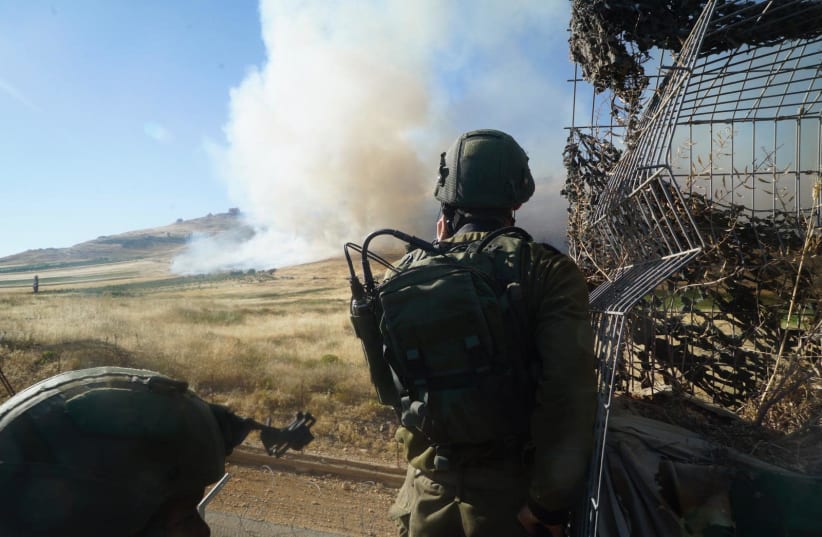
The IDF on Thursday attacked a key Hezbollah-Iranian airstrip in Kilat Jaber, Lebanon, that was used for launching aerial attacks against Israel, in a major escalation between the sides.
Last September, Defense Minister Yoav Gallant revealed pictures showing the joint Hezbollah-Iranian terrorist air base in southern Lebanon, about 20 kilometers from the Israeli border.
الغارات التي استهدفت منطقة الجبور في اقليم التفاح#جنوب_لبنان pic.twitter.com/BvSnB95Ige
— Rabih moustafa حساب احتياط (@rabih2381) January 25, 2024
The Iranian flag could be seen flying on the runways at the terrorist air base, which the ayatollahs’ regime is using to plot against Israel, he said at the time.
“Put differently, the land is Lebanese, the control is Iranian, the target is Israel,” Gallant said.
Israel must “remain aware and at [the] ready, with our eyes set on the binoculars and our fingers on the trigger,” he said.
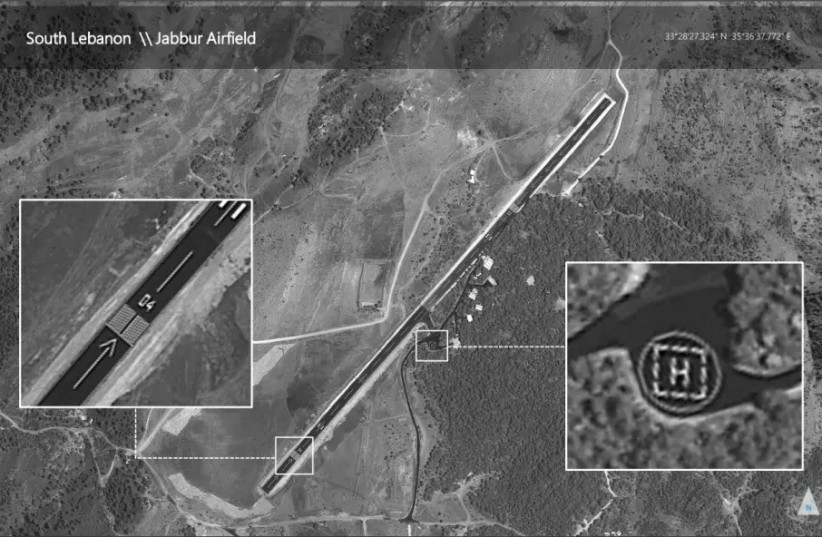
Iran remains the greatest threat to Israel, although it sometimes uses Hezbollah and other proxies to fight its wars against the Jewish state, Gallant said.
If Hezbollah “goes toward a conflict with us, they will pay a high price,” he said.
“We will not allow Iran to turn Syria into a Hezbollah 2.0” with powerful rockets, Gallant said.
Previous IDF strikes
Last week, The Jerusalem Post was present when top defense officials were asked about when the base would be struck, and they dropped hints that such an attack might not be far off, without committing to any timeframe.
The IAF also attacked a series of Hezbollah targets in the areas of Tzur and Ma’ira in Lebanon.
Earlier Thursday, Hezbollah launched two “hostile aerial objects” into Israel that fell harmlessly near Kfar Blum, the IDF said in extremely vague terms regarding whether the military’s defenses had functioned properly.
In addition, the IDF attacked other Hezbollah locations in Lebanon using artillery and mortars.
There were no rocket sirens in the North on Thursday, and as of press time, Hezbollah had not yet responded to the IDF’s major power move against its air strip.
Meanwhile, Gallant visited the Yahalom anti-tunnel unit on Thursday, praising them for their success in destroying Hamas tunnels and trapping terrorists within their own supposed booby-trap they set for IDF forces.
Hamas was collapsing within its own tunnels, he said.
For the first time, large numbers of Hamas forces, more than 100, were starting to surrender in Khan Yunis, the way some large numbers started to surrender eventually in northern Gaza, Gallant said.
If the trend continues, it would be a major development after nearly two months of fighting in southern Gaza. The IDF had been more frustrated with Hamas’s ability to hold out much longer in Khan Yunis than the terrorist group had held out in Gaza City.
The IDF sent out several additional messages about focused progress in Khan Yunis on Thursday, but IDF sources were still unclear how close the terrorist group’s remaining battalions there were to breaking the way they have in northern Gaza.
Also, IDF sources are sending less clear messages now than last month about whether Hamas’s leadership remain in Khan Yunis and are close to being surrounded, or whether they may have fled to Rafah or some other part of southern Gaza where the IDF still has largely not entered.
As of press time, the only rocket siren for Thursday was midday at Nahal Oz, which also marked the first rocket fired by Hamas since Monday and only the third in more than a week.
Overall, total rocket sirens in both the North and the South have fallen to 44 for the last week, or only about six per day, down from hundreds per day at the start of the war and even 50-70 per day months into the war.
IDF Chief of Staff Lt.-Gen. Herzi Halevi held a situational assessment with other top officers and reservists in Khan Yunis on Thursday.
Following the assessment, he expressed his “massive appreciation” for reservists operating on the ground in Gaza, telling troops that they were carrying out “historically significant” operations against the enemy, “with the number of problems per square kilometers... the level of fighting was extremely high.”
Regarding IDF reservists who were withdrawn from Gaza this week, Halevi said: “Even when everyone is out [of Gaza], they must be taken care of, and after they are taken care of, we will resume fighting.”
Jerusalem Post Staff contributed to this report.
Go to the full article >>Hamas is collapsing in its own Gaza tunnels, Gallant tells IDF soldiers
"In the last day and a half, over 100 terrorists have come up, some of them underground, in the Khan Yunis area, and in other places - because they understand that they can't fight against the IDF."
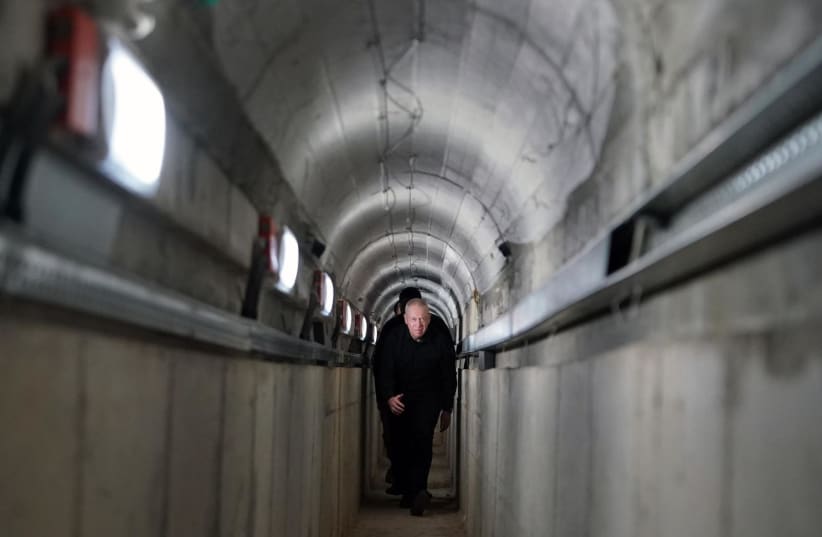
"Hamas is collapsing within its own tunnels," Defense Minister Yoav Gallant said to soldiers of the Yahalom unit of the Combat Engineering Corps in a visit to the unit training base on Thursday, according to the Defense Ministry Spokesperson's Unit.
The defense minister debriefed with Chief Engineering Officer Lt. Col. Yoav Turkansky and the commander of the unit, Lt. Col. A., on the unit's activities in the war to locate and destroy terrorist infrastructure in the Gaza Strip.
After the debriefing, Gallant expressed his appreciation to the soldiers in active duty and reserve units for their efforts in the ongoing war.
"There is no place I go in Gaza - the central camps, Khan Yunis, wherever I go, I meet the fighters - and they don't talk to me about Yahalom," he told the soldiers.
Gallant says price of the war is heavy, but results speak for themselves
"Unfortunately, this operation has costs, and the unit paid a heavy price," he continued. "On the other hand, the results are clearly seen - Hamas dug tunnels to use them against us with all kinds of methods - but in reality, Hamas is collapsing into its own tunnels that it dug with great effort. Every place they thought would be a trap for IDF soldiers became an area where we defeated them in various ways."
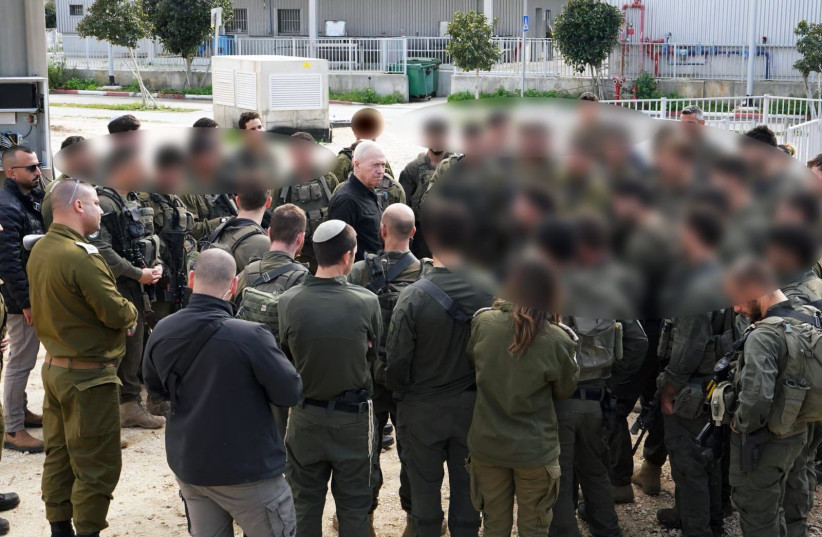
He then addressed the IDF's success in eliminating droves of terrorists in Khan Yunis over the past day.
"Hamas has suffered hundreds of casualties underground as a result of your and your friends' operations. And besides, we've only been in the last day and a half, yet we have over 100 terrorists who have come up, some of them underground, in the Khan Yunis area, and in other places - because they understand that they can't fight against the IDF. It's thanks to you and your friends."
"This is an expression of the need for our systematic and strategic operations," he stated, lamenting October 7 and reaffirming the IDF's mission. "We have not forgotten what happened on the seventh of October; whoever killed our children, raped our women, and kidnapped our elders, we will take their heads."
"We will not be able to strike everyone in Hamas, but we will reach a point where we dismantle this organization; it will not control Gaza, and it will not have military force," he assured them.
"Persevere, do your work, and we will bring the result. There is a lot of appreciation for what you are doing throughout the State of Israel, in the public, and certainly in the security establishment and the IDF. Thank you very much, friends; I wish you all much success," he concluded his statement.
Go to the full article >>'JPost' election poll: New party of IDF reservists shakes up Israeli politics
According to the poll, a reservists’ party headed by Diaspora Affairs and Combating Antisemitism Minister Amichai Chikli (Likud) would win eight seats.
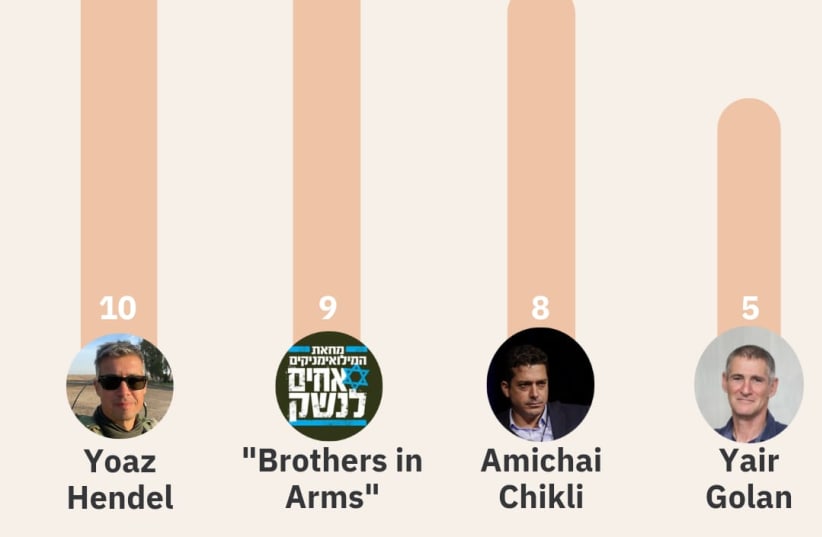
A new party of IDF reservists who served in the Gaza Strip would receive 10 seats if led by former communications minister Yoaz Hendel, a poll conducted for The Jerusalem Post found this week.
The poll also found that a reservists’ party headed by other candidates with a military background would garner strong support. Hendel is not in the Knesset and does not officially belong to any political party.
According to the poll, a reservists’ party headed by Diaspora Affairs and Combating Antisemitism Minister Amichai Chikli (Likud) would win eight seats. Chikli served as a reserve soldier briefly at the beginning of the war.
The results of the poll
A reservists’ party headed by former deputy economy minister Yair Golan (Meretz) would gain five seats, according to the poll.
A party by the leaders of the Brothers in Arms movement would receive nine seats. The Brothers in Arms movement was established during the judicial reform process and later mobilized many of its supporters to assist in the aftermath of the October 7 massacre.
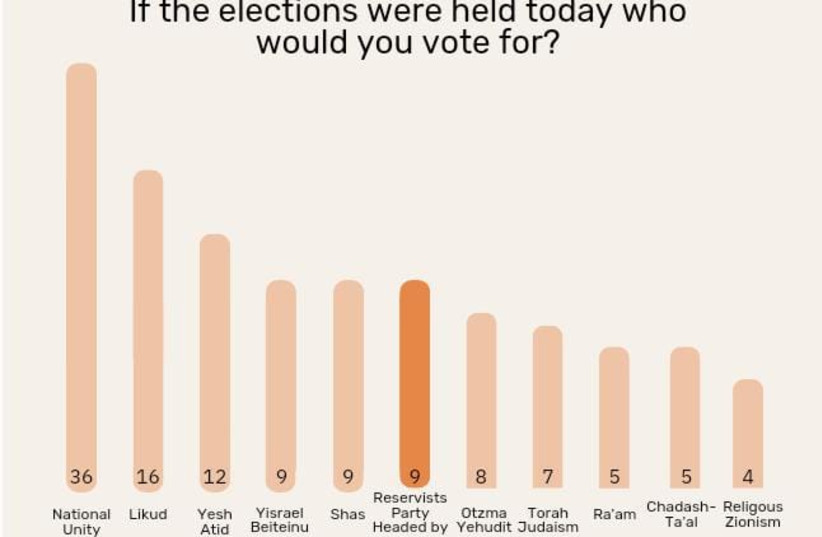
The poll also found that if the reservists’ party is headed by Hendel or Chikli, the Religious Zionist Party led by Finance Minister Bezalel Smotrich would not pass the electoral threshold. If the reservists’ party is led by Brothers in Arms, the Meretz Party would be impacted. But if Golan heads the new party, his five seats would enable Meretz and his party to pass the threshold.
The poll indicates the power of reservists currently serving in the Gaza Strip, and that if they vote as a bloc, they could sway the outcome of a future election.
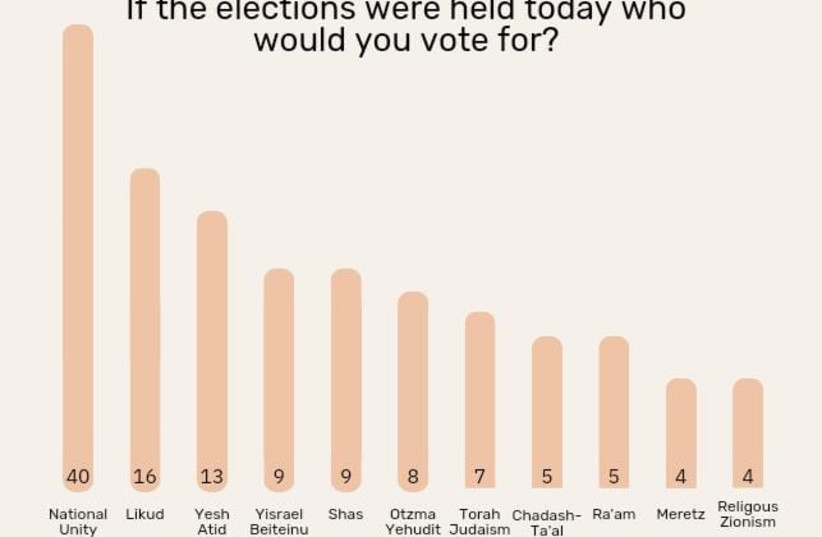
In all of the different scenarios that the poll checked, National Unity Party voters comprise the main electorate of the new Reservists’ Party, and three or four of its seats would move to the Reservists’ Party.
Another primary source of voters for the new party would be undecided voters or those unwilling to vote for any current party.
Taking the right-winged approach in the war
The past few weeks have already seen several initiatives by recently released reservists to impact Israel’s political map. Most of them are calling for a decisive, right-wing approach to winning the war and replacing Israel’s current leadership.
The poll by Dr. Menachem Lazar found that a new reservists’ party headed by right-wing Hendel or Chikli would bring Netanyahu’s coalition to an all-time low of 40 seats.
The poll also examined who the public is most interested in seeing lead the rehabilitation of Israel after the war.
Benny Gantz had 53% support, followed by Gadi Eisenkot (50%), Naftali Bennett (46%), and Yossi Cohen (45%).
Other possible candidates, in order of support, were Chili Tropper, Nir Barkat, Yoaz Hendel, Yair Lapid, Benjamin Netanyahu, Itamar Ben-Gvir, Yair Golan, and Bezalel Smotrich.
Yossi Cohen had the smallest difference in bipartisan support between voters on the Right and Center-Left, at 3%. The candidates with the most significant difference were Netanyahu (50% difference), Ben-Gvir (49%), and Lapid (47%).
The poll was conducted in light of the vacuum felt by a drop in support for the Likud and the significant change occurring among the hundreds of thousands of reservists who enlisted to fight in Operation Swords of Iron.
The survey took place on January 24-25, with 513 participants. The respondents were a representative sample of the adult population, including both Jewish and Arab citizens aged 18 and above.
The margin of error was 4.3%, the pollsters said.
Go to the full article >>US intel chief to hold hostage deal talks as Netanyahu battles Qatar
Burns and the head of Israel's Mossad intelligence service, David Barnea, will meet with Qatari Prime Minister and Foreign Minister Sheikh Mohammed bin Abdulrahman Al Thani in Europe this weekend.
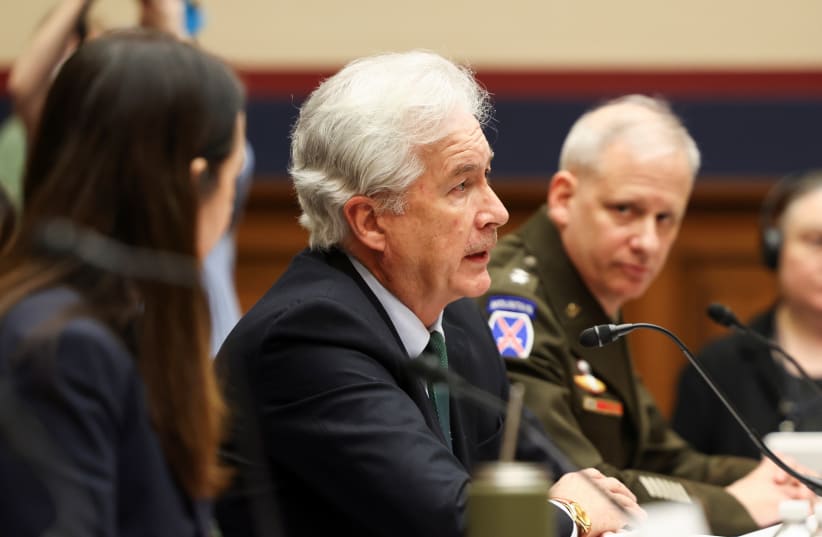
The public spat between Jerusalem and Doha has not prevented US Central Intelligence Agency Director William Burns from heading to Europe to hold talks with Israeli, Egyptian, and Qatari officials in the coming days.
Both Reuters and The Washington Post reported on Burn’s meeting as Israel’s war cabinet met on Thursday night to discuss the hostages as Qatar and the relatives of the hostages accused Prime Minister Benjamin Netanyahu of harming the possibility of a potential deal.
Israel has proposed a two-month pause in fighting to allow for the phased release of the 136 hostages still being held following the Hamas-led October 7 attack, The Washington Post said.
Biden administration working on new hostage deal
Burns "has been...involved in helping us with the hostage deal that was in place and trying to help us pursue another one," White House National Security Council spokesman John Kirby told reporters traveling with US President Joe Biden aboard Air Force One, referring specific questions to the agency.
“The discussions we are having about trying to get a renewed hostage deal are sober and serious,” Kirby said, recalling that US special envoy Brett McGurk was in the region to try and push forward a deal.
The Israeli people want their “loved ones back,” and the US wants its hostages back home, Kirby said, explaining that “there is a lot of energy being put into this across the region with our Israeli counterparts as well as other counterparts including the Qataris.”
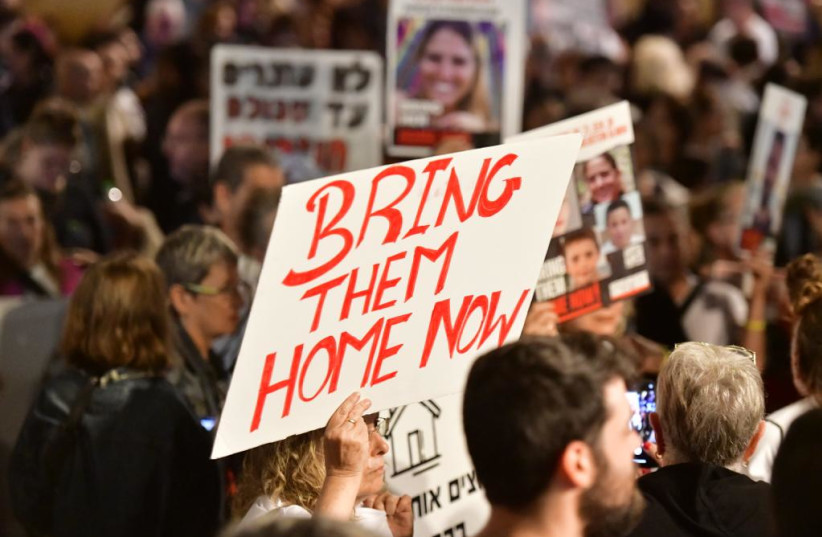
The CIA, which has a policy of not disclosing the director's travel, declined to comment on the meeting in Europe next week.
US President Joe Biden dispatched Burns to speak with officials, including Qatari Prime Minister and Foreign Minister Sheikh Mohammed bin Abdulrahman Al Thani, comes as Israel's retaliatory military campaign against Hamas continues into its fourth month.
Netanyahu 'stoking tensions' with Qatar
The families' campaign to free the hostages accused Netanyahu or his associates on Thursday of intentionally stoking tensions with Qatar by leaking a tape in which Netanyahu insulted Doha’s efforts to negotiate a deal.
"All conversations that take place in meetings with the Prime Minister are recorded by his office and his associates present at the meeting,” the campaign’s spokesperson Haim Rubinstein said.
“The families participating in the meeting had their phones taken at the entrance,” Rubinstein explained.
“The decision whether to leak information concerning the deal and its intermediaries is the Prime Minister's office,” Rubinstein stated.
He spoke in response to a story on Channel 12, which featured a leaked recording from the closed-door meeting held with the family earlier this week in which Netanyahu could be heard referring to Qatar as a “problematic mediator.”
Rubinstein said that “the fact that the censorship permitted publication of the [tape] is serious and indicates a loss of judgment. The cabinet's duty is to prevent a crisis that would endanger the lives of the captives.”
The decision not to censor the publication of the tape and thus “endanger the lives of the hostages” after they were already abandoned on October 7 is a crime!” he said.
“We demand that the members of the cabinet stop the madness and act responsibly to save the lives of 136 Israelis who were abandoned and kidnapped,” he stated.
Rubinstein charged that “an organized campaign is underway against them with one goal: to delegitimize the hostages who are in the hands of the monsters of Hamas!"
He spoke up after Qatar called Netanyahu’s comments “irresponsible” and said they were harming efforts to mediate a deal to release the captives.
The Prime Minister’s Office said it did “not record, approve or distribute the recordings, and any other claim is false.”
Finance Minister Bezalel Smotrich publicly backed Netanyahu by attacking Qatar in a post on X, in which he charged that it was a “country that supports terrorism and finances terrorism.”
Qatar “is Hamas’ patron and is largely responsible for the massacre committed by Hamas of Israeli citizens.
“The West's attitude towards it is hypocritical and based on improper economic interests. The West can and should exert much stronger levers on her and bring about the release of the abductees immediately,” he said.
“One thing is clear,” Smotrich said, “Qatar will not be involved in what happened in Gaza the day after the war.”
He expanded on those comments at a conference by the non-governmental group the Bitchonistim.
Qatar is playing a double game with the West because it encourages, assists, and finances terrorism, Smotrich stated.
“Today, Qatar is the element that is the most delaying the return of the Israeli captives,” Smotrich said. “We could receive the 136 Israeli captives tomorrow morning If Qatar issues an unequivocal ultimatum to Hamas,” he added.
“Qatar has a clear interest in preserving Hamas, ensuring its survival and continued governance in Gaza,” and as such, it has done everything to thwart Israel’s efforts to destroy the terror group, Smotrich stated.
The hostages are a bargaining chip to help Hamas remain in power in Gaza, he said, and the terror group will not relinquish them so easily, he said.
Israel must cut its ties to Qatar, Smotrich stated. It's time to tell the hostages that not all the hostages can be freed, he said. It's a mistake to think that Hamas leader Yehyeh Sinwar "will give up such a valuable asset (the hostage)" because by holding on to them, he weakens Israeli society and tears it apart, Smotrich said..
US State Department deputy spokesperson Vedant Petal said that Qatar remains a key US ally.
The animosity between Israel and Qatar, which do not have diplomatic relations, comes amid increased tensions between Israel and its Middle East ally Egypt, with whom it has had formal relations since 1979.
At issue in particular has been Israel’s insistence that to prevent arms smuggling into Gaza, it must control a buffer zone in the enclave by the Egyptian border, known as the Philadelphi corridor.
Egypt's President Abdel Fattah al-Sisi on Wednesday accused Israel of holding up aid deliveries for the Gaza Strip as a pressure tactic to push Hamas to free the hostages.
"This is a form of pressure on the Gaza Strip and its people over the conflict and the release of hostages. They are using this as a pressure tool on the people of the Strip,” Sisi said in comments to mark Egypt's national police day.
Israel denied the charge. "Our inspection process is efficient, with us scaling up our capacities to maximize inspection capabilities," COGAT, an Israeli Defence Ministry agency that coordinates aid deliveries with the United Nations and humanitarian groups, said on social media platform X on Wednesday.
"There is no limit to the amount of aid that can enter Gaza.”
Earlier this week, government spokesperson Eylon Levy said that trucks entering Gaza had the capacity to carry more than what the international community had sent for Gaza.
Go to the full article >>Anticipation high as ICJ set to deliver Gaza war ruling today
The International Court of Justice is expected to decide whether to issue provisional measures ordering Israel to end its military actions in Gaza.
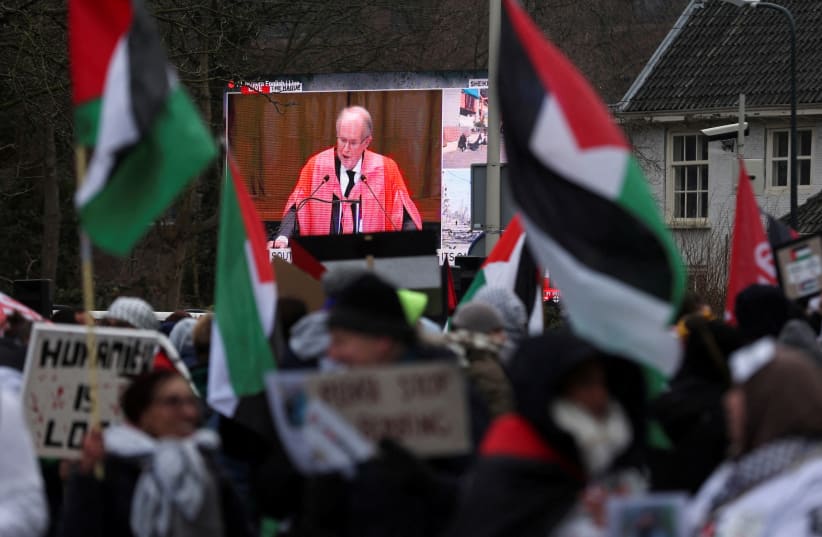
THE HAGUE, Netherlands – Tensions are high ahead of Friday’s expected International Court of Justice ruling in the Hague at 1:00 p.m. local time, on the complaint submitted by South Africa accusing the Jewish state of carrying out genocide in Gaza.
The court is expected to decide whether to issue provisional measures ordering Israel to end its military actions in Gaza.
It could also insist that Israel must halt any actions that force population displacement or instruct it to enable the free entry of humanitarian aid into Gaza.
A representative of Israel’s embassy in the Hague will be present at the Court for the publication of the ruling, and at least one representative of the Israeli legal team.
Speaking with reporters on Thursday, Israeli government spokesperson Eylon Levy said, “We expect the ICJ to throw out these spurious and specious charges.”
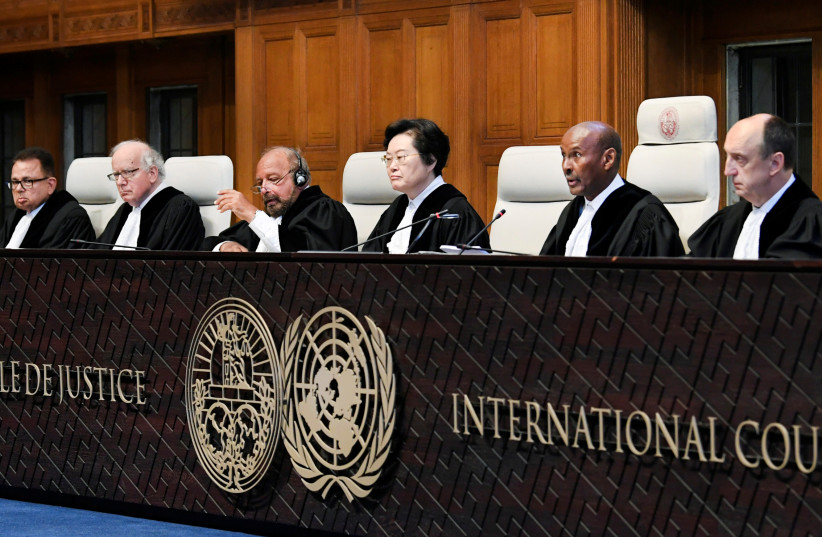
ICJ likely to issue an intermediate ruling against Israel
Israeli officials, however, told The Jerusalem Post in recent days that the Court is likely to issue an intermediate ruling against Israel, though perhaps a softer version, that would not grant South Africa everything it seeks.
The ICJ is not obliged to adopt South Africa’s provisional measures’ demand. It could opt for its own rephrasing. For instance, it could demand that Israel increase humanitarian access to Gaza, It could ask Israel to refrain from any actions that could in the future be viewed as genocidal, or it could simply urge Israel to act according to international law while expressing its concerns over past actions.
More so, the provisional measures do not depend in any way on South Africa, proving that Israel committed genocidal acts. In other words, even if the judges estimate that at the end of the long process, South Africa has failed to prove this allegation, they could still opt for some sort of provisional measures today.
The issuance of a ruling on the genocide charge could take many months, perhaps even years of deliberations.
In Washington on Thursday, US State Department Deputy Spokesperson Vedant Patel said, “We believe the allegations that started this process, that Israel is committing genocide” is “unfounded.”
He stressed, however, that the Biden administration “will continue to raise the moral and strategic imperative” of minimizing civilian deaths in the war.
Prime Minister Benjamin Netanyahu did not directly address the anticipated ICJ ruling, but he visited soldiers in southern Israel and vowed to destroy Hamas.
In honor of the Tu Bishvat holiday, which celebrates trees, he planted a sapling to signify his determination that Israel would grow strong in that region.
“Hamas came to uproot us; we will uproot them. Hamas came to wipe us out; we will wipe them out. We will deepen our roots in our land, and we will uproot our enemies. We will be here, and they will not be there,” Netanyahu stated.
Who is ruling on the genocide charges - and how?
The South African complaint was submitted on December 29. Hearings took place in the Hague on January 11, when South Africa presented its case, and on January 12, when Israel defended itself against it. Each country appointed an ad hoc judge that joined the 15-justices panel of the ICJ. Jerusalem picked former High Court president justice Aharon Barak to be its person on the panel.
The three-hour presentation by the South African team included pictures and videos showing mass graves in Gaza and Israeli bombing. They also cited Israeli politicians, IDF commanders and soldiers allegedly making inflammatory statements calling for or supporting genocidal acts or policies.
The Israeli team pointed out that the country was engaged in considerable efforts for humanitarian assistance to enter Gaza, an approach contradictory to the South African delegations. The New York Times published on Thursday that in parallel to the January 12 presentation, Israel submitted to the ICJ more than 30 declassified files. These include secret cabinet meetings, resolutions, and orders by military commanders. Israel reportedly argues that these declassified documents rebut the allegation that it committed genocide in Gaza, showing instead its efforts to diminish the number of civilian casualties in the Strip.
What will happen if ICJ rules against Israel?
The ICJ has no means to force Israel to stop the fighting in Gaza. But if indeed it issues provisional measures against Israel, the UN Security Council could follow up on it with a proposal to sanction Israel in some way. Then, it will be up to the United States to use its veto right to block any such proposal.
Former Ambassador and Foreign Ministry Spokesperson Yigal Palmor told the Jerusalem Post that “whatever the decision is, South Africa has already achieved its main, half-confessed objective, namely casting aspersions on Israel and imprinting an ugly stain on its reputation by merely associating it, through worldwide headlines, with a heinous crime.’’
Palmor added that a decision by the ICJ to order a unilateral - though unenforceable - ceasefire ‘’could bolster the enterprise of demonizing Israel.’’ He added that even if eventually the Court refrains from all actions, the damage to Israel’s international image and standing
Go to the full article >>How will the ICJ rule today in anti-Israel Gaza genocide case? - analysis
How could the ICJ rule against Israel when there is no possible way to reasonably read the Genocide Convention as applying to the IDF’s conduct?
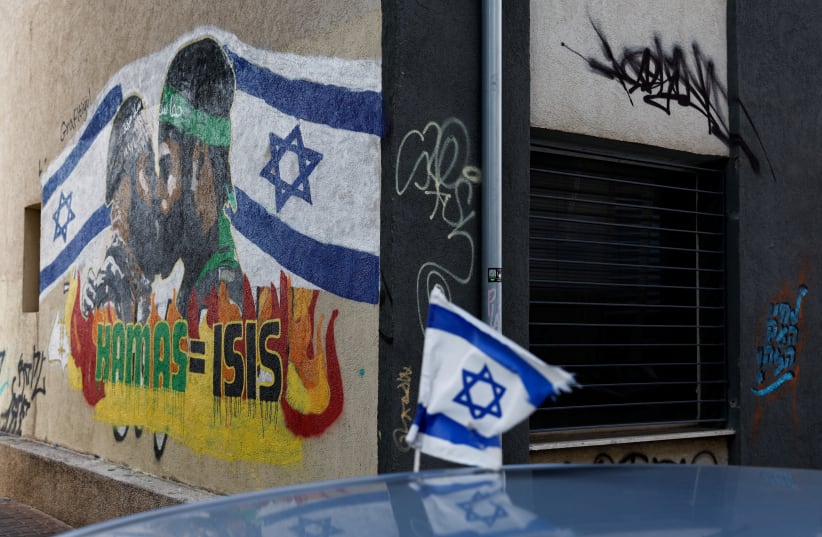
There are three main ways that the International Court of Justice can come out today: A big win for Hamas and South Africa, a big win for Israel, or somewhere in the middle.
All of this is keeping in mind that there is no chance that the ICJ will declare today that Israel has committed genocide. If it came to that conclusion, and most observers find that unlikely, it would be 18 to 36 months away after extensive proceedings and evidence from both sides.
So the big loss for Israel would not be that, but rather an ICJ interim order to cease the war and withdraw all Israeli security forces from Gaza pending the later decision in 18-36 months.
How could the ICJ come to this conclusion when there is no possible way to reasonably read the Genocide Convention as applying to the IDF’s conduct?
How will the ICJ reach its verdict on Israel's war in Gaza?
First of all, the ICJ is a highly political body.
Lebanon, Somalia, Morocco, Brazil, China, and Russia are expected to vote against Israel due to their government’s positions against Israel during the current war.
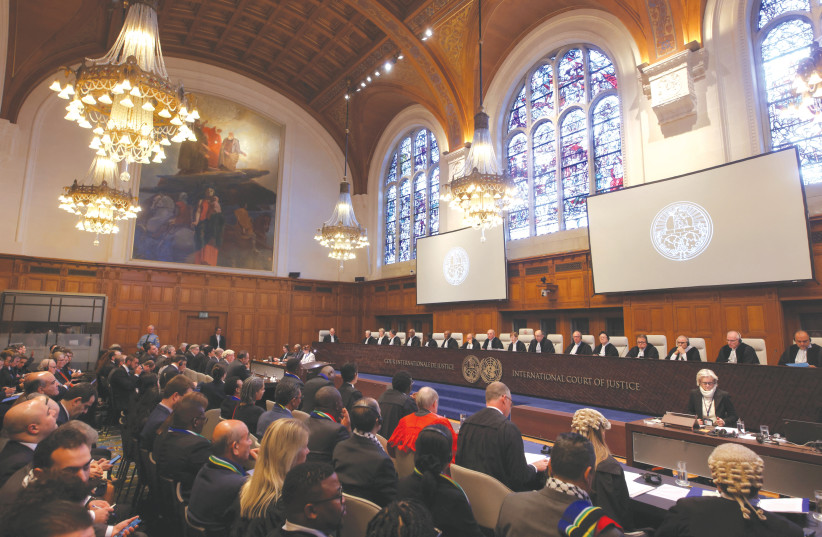
There are some interesting, complex scenarios where China or Russia might not vote against Israel in order to achieve some other self-interest for themselves in confronting genocide charges (though in their cases, most Western officials believe that they have committed genocide), but other than that, Jerusalem is out six votes from the start.
However, Western democracies, such as the US, Germany, Slovakia, France, Japan, and Australia, are all expected to vote for Israel.
The swing votes in the case are Uganda, Jamaica, and India, but even those countries are expected to make some political calculations – simply put, they are not clearly on one side or another diplomatically.
Can Israel's war on Hamas be ruled a 'genocide'?
In terms of the law, even if the final substantive genocide case is weak, some judges could say they need to order Israel to stop the war given that around 25,000 Palestinians have been killed, probably over 60% civilians even according to IDF statistics, and the fact that it may remain an open issue.
Again, Israel could have strong claims that succeed down the stretch, but that might not stop the ICJ from issuing a cease and desist order.
Still, the ICJ knows that Israel would likely ignore the order and that many of its supporters in the West might also decry such a ruling.
In 2004, the ICJ declared Israel’s West Bank Wall illegal despite knowing that Jerusalem might ignore the ruling, but Israel has more sympathy, at least from many Western governments after October 7, than it had in 2004.
In any case, Israel could not be forced to comply because the US would veto any moves in the UN Security Council, the world’s only enforcement body.
But it desperately hopes there is no cease and desist order because its violation of that order could lead to diplomatic and economic sanctions as well as be a devastating public relations issue.
Probably the least likely scenario is a total Israeli win, with the case being thrown out without even getting to the more in-depth 18-36-month stage.
This would be the right legal decision, but once again, due to politics as well as the unprecedented number of dead Palestinians (“only” 2,100 were killed in the 2014 50-day conflict, and only about 50% were civilians), this is extremely unlikely.
Will Israel comply with the ICJ's ruling?
A very plausible option is a compromise in which the ICJ does not order the IDF to stop the war, but it orders a steep rise in permitting humanitarian aid.
Israel has allowed in humanitarian aid, but its security precautions have limited the speed and volume.
There might be some case where Israel would allow the aid in faster and drop some of its security checks to comply with such a ruling, partially out of gratitude for avoiding a worse ruling.
Also, Israel might agree to comply with the ruling, but then at some point only partially comply, claiming some new terrorist problem from Hamas, which could send the issue back to the ICJ, but only after further delay.
The ICJ could also search out other compromises, such as not ordering the IDF to desist just yet but putting some kind of future deadline for intense military operations or for the withdrawal of Israeli forces from all or most of Gaza.
It could also schedule a follow-up hearing in which it continues to reevaluate the issue to maintain pressure on Israel and reach a ceasefire point.
All of this could also impact the International Criminal Court, which has its own ongoing probe of Israelis.
Whichever way the ICJ rules on Friday, it will be history in the making for Israel, Hamas, and South Africa.
Go to the full article >>Israel-Hamas War: What you need to know
- Hamas launched a massive attack on October 7, with thousands of terrorists infiltrating from the Gaza border and taking some 240 hostages into Gaza
- Over 1,200 Israelis and foreign nationals were murdered, including over 350 in the Re'im music festival and hundreds of Israeli civilians across Gaza border communities
- 136 hostages remain in Gaza, IDF says